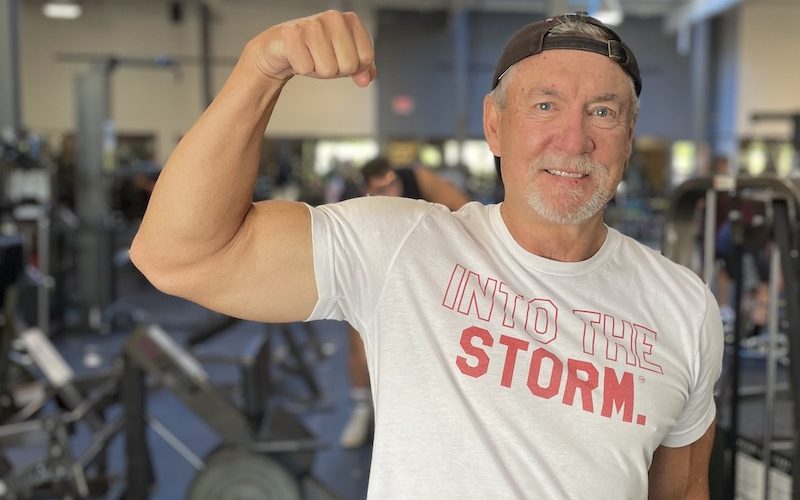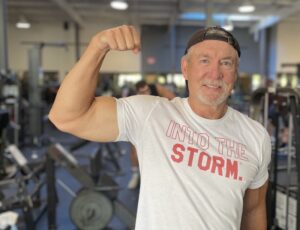How do you want to be remembered?
What kind of legacy are you trying to leave for your children and grandchildren, or for your friends or community?
It’s a key question facing a lot of people later in life, and it can motivate us to take positive action.
That’s what happened with Gary Stewart about 15 years ago.
From One Lifestyle to Another
By the time he was 50, Gary had become a successful businessman and was a former weekend warrior in the gym, golf course, and basketball courts.
But his drinking problem got the best of him, and during a session in rehab, Gary was encouraged to think about the legacy he wanted to leave his two adult children and their kids.
“I dropped the anchor and said, ‘I’m changing,’ Gary recalls now at 66. “It hit me, it was an epiphany, and I just said, ‘I’m either going to leave a legacy of beating this problem or being haunted by it all my life.
“I decided that’s it. I’m never gonna touch another drop. I made a commitment to myself. Part of that was deciding to lift a bar instead of sit at one.”
He became a regular at the local gym, ate a proper diet, and packed on a ton of muscle, finding a toehold in his quest for a new, healthy life. When he moved to a new city last year to be closer to a daughter, he was fully confident walking into the neighborhood gym and starting there.
What Legacy Will You Leave?
Wanting to leave a legacy is a powerful human drive for many people.
It can manifest in several ways – such as leaving a financial estate to your heirs or creating an endowment to support education after you’re gone. It can mean setting an example for others, and spending time with the people you love – particularly those who will benefit from your life lessons and how you overcame challenges.
Those can include health and fitness. Research is solid that playing with grandchildren is good for both mature adults and the kids – physically, socially, and emotionally. That’s partly because you’re encouraging the kids to have physical habits, to interact with older people, and to share laughter and love – and also because you’re moving and smiling, yourself.
It doesn’t have to involve something as serious as addiction or rehab.
And it doesn’t require spending as much time at the gym as Gary likes to do.
“Start slow and stick to the fundamentals,” he advises newcomers. “It takes time, so just stick to the fundamentals, go slow, and clean up your diet.”
Years ago, Gary’s crisis forced him to reevaluate how he wanted to be spending his time – and how he wanted to be seen by those who looked up to him.
Since then, everything is better – for him and the people he loves.
“For me, I just decided it was going to be family, friends, fitness and golf – all of that. I made a pact on how I was going to live the rest of my life.”
Holly Kouvo is a personal trainer, functional aging specialist, senior fitness specialist, brain health trainer, writer, and speaker.


